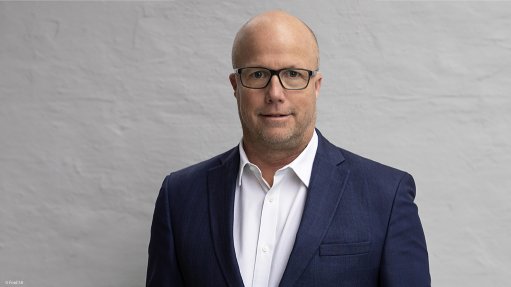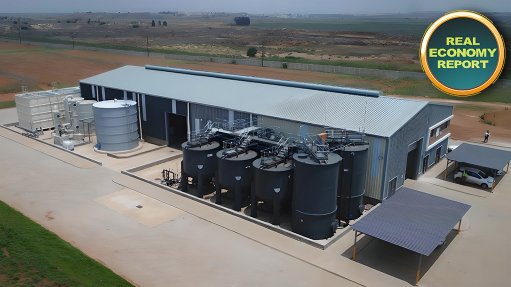Need to up nuclear generation
It electricity has only been available for about 120 years. This means, for example, that there was no electricity during the South African War and the many previous wars. Entire nations lived without electricity and your great-grandparents probably lived in houses which were illuminated by candlelight.
Electricity, as you should know, comes from fuel oil or, to some extent, nuclear means, and is consumed at a great rate. The question is: Is there a limit to the consumption? In other words, is it possible that we use electricity to the point where we run out? As long as we use electricity from nuclear means, it seems there is little chance of it running out. It is, however, possible that electricity supplied by fuel oil will reach a limit, which will create a shortage. You may think that this is not so; however, in the US, in Northern California, about four years ago, the availability of electricity reached a limit, and the area was without electricity for about a week. Since that time, rules have been introduced to avert this. It is, however, not correct to assume it’s impossible for an electricity shortage or outage to occur.
Electricity shortages, if they occur, will be most stable until a certain point of shortage is reached, when there will be a decision by consumers throughout the area concerned to use as much electricity as they can or to store as much electricity as they can in anticipation of a sudden shortage.
In South Africa, our electricity is largely owned by Eskom. This means its usage is controlled, and it’s very unlikely we will run out of electricity in an uncontrolled fashion. This is very different from being in a situation where you don’t supply electricity from time to time, which is happening right now. In the US, the situation is somewhat different; there are parts of the southern US which regularly have run out of electricity completely.
Getting back to the larger-scale matter, we have had electricity supplied for about 120 years. This is not likely to last to the point where we have had supply for 200 years. Nuclear power is reliable and durable but will not last forever. The future, thus, is based on reducing the consumption of electricity. In certain parts of the world, the consumption per capita is really very little; however, the overall consumption is increasing. In other parts of the world the consumption per capita is just increasing and is likely to continue to do so. This is the situation in South America.
What is very evident is that in virtually every country (again with the exception of South Africa, where we have Eskom rigorously preventing additional consumption) the consumption of electricity is increasing, not at a rapid rate, and this leads to a situation where availability reduces, and will reduce in the long term to a point which will lead to additional expense and the need for alternatives. The question is: Are there alternatives to the current means by which electricity is generated? One immediately begins to suggest the concept of solar or wind power. Both these systems, while desirable from many points of view, are small in comparison to the total energy requirement and we do have to remember that solar energy is dependent on the sun shining and wind energy on the wind blowing, and neither operates in the middle of a still winter’s night.
The probable future lies in an increase of power generation using nuclear power of some description. This can be power generation by fission or fusion reaction. We already have power systems such as Koeberg and the world has similar reactors. The French are working on alternative reactors, and it is possible they will succeed in producing, if not working, then at least prototypes. Going ahead with nuclear power is not going to solve the problem in the time needed. What we have to do is recognise that the time is coming for us to come up with alternative power generation and work on reduced power consumption.
Comments
Press Office
Announcements
What's On
Subscribe to improve your user experience...
Option 1 (equivalent of R125 a month):
Receive a weekly copy of Creamer Media's Engineering News & Mining Weekly magazine
(print copy for those in South Africa and e-magazine for those outside of South Africa)
Receive daily email newsletters
Access to full search results
Access archive of magazine back copies
Access to Projects in Progress
Access to ONE Research Report of your choice in PDF format
Option 2 (equivalent of R375 a month):
All benefits from Option 1
PLUS
Access to Creamer Media's Research Channel Africa for ALL Research Reports, in PDF format, on various industrial and mining sectors
including Electricity; Water; Energy Transition; Hydrogen; Roads, Rail and Ports; Coal; Gold; Platinum; Battery Metals; etc.
Already a subscriber?
Forgotten your password?
Receive weekly copy of Creamer Media's Engineering News & Mining Weekly magazine (print copy for those in South Africa and e-magazine for those outside of South Africa)
➕
Recieve daily email newsletters
➕
Access to full search results
➕
Access archive of magazine back copies
➕
Access to Projects in Progress
➕
Access to ONE Research Report of your choice in PDF format
RESEARCH CHANNEL AFRICA
R4500 (equivalent of R375 a month)
SUBSCRIBEAll benefits from Option 1
➕
Access to Creamer Media's Research Channel Africa for ALL Research Reports on various industrial and mining sectors, in PDF format, including on:
Electricity
➕
Water
➕
Energy Transition
➕
Hydrogen
➕
Roads, Rail and Ports
➕
Coal
➕
Gold
➕
Platinum
➕
Battery Metals
➕
etc.
Receive all benefits from Option 1 or Option 2 delivered to numerous people at your company
➕
Multiple User names and Passwords for simultaneous log-ins
➕
Intranet integration access to all in your organisation

















